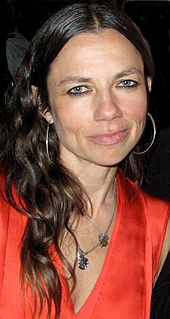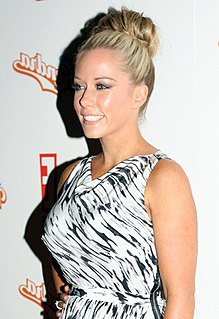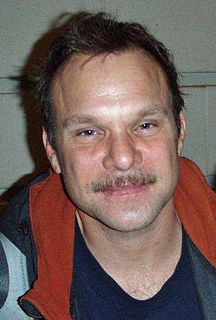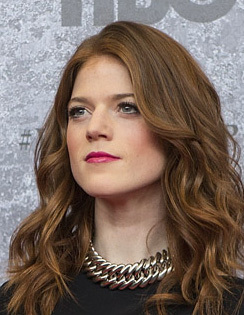A Quote by Justine Bateman
Sometimes in theater, they'll talk about your character a lot before you enter, but that rarely happens in television.
Related Quotes
I don't have emotions about a lot of things. I rarely get angry, I rarely cry. I guess I do get excited a lot, but I don't get sad and enormously happy. I think a lot of people who talk about all that crap are lying. Right now I'm just trying to maintain happiness — that's all I really care about. Anyway, when you're my age and your hormones are kicking in, there's not much besides sex that's on your mind.
The first thing that happens is the cleansing of the former character. I don't think a lot of actors talk about it, but there is usually a process where you essentially purge yourself of the character played prior to the movie. Then you want to think about what the character represents, and you write down all of the elements about this character and then take the time to find some synchronicity and start breathing the character.
I learned a lot from Dick Wolf. I'll always remember playing that character because it was such a good character. It was great to be able to be a character like that for television. I think the thing that I'll bring from the whole experience, the whole 10 years, is I had never been interested in the television business before.
What happens at the average church or synagogue or mosque is that I don't know many priests or ministers or rabbis who say to their congregation, 'go home and talk about the religion at the kitchen table with your kids...talk about God, talk about what this is all about.' They say in general, come back on the weekend, we'll talk to you about it.
I've noticed a lot of people talking about the wealth of roles for powerful women in television lately. And when I look around the room at the women here and I think about the performances that I've watched this year, what I see actually are women who are sometimes powerful and sometimes not. Sometimes sexy and sometimes not. Sometimes honourable and sometimes not. And what I think is new is the wealth of roles for actual women in television and in film. That's what I think is revolutionary and evolutionary and it's what turning me on.
Sometimes not honoring your character makes for really good television, but that also can really upset fans. You have to turn things upside sometimes. As a storyteller, you have to know that sometimes you're going to let your fans and the audience down because you have to do your part in servicing the story.
Working on camera is a different ballgame in the sense that it's far more intimate work, but the basics and the foundations of being able to create something that isn't necessarily your own instincts - is a character that you have inside your head - whether you're talking about television or film or theater, that still has to be the grounding work.
Sometimes, if you have a lot of history with a character and a lot of affection, it's hard for you to do anything with that character. Like with Swamp Thing, for instance, I revere the Alan Moore run so much that it would be hard for me to do my own Swamp Thing. I care too much about the way it was done before.




































